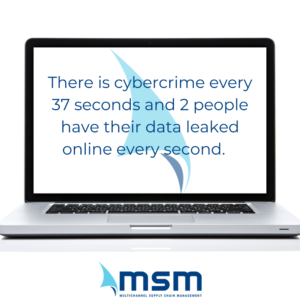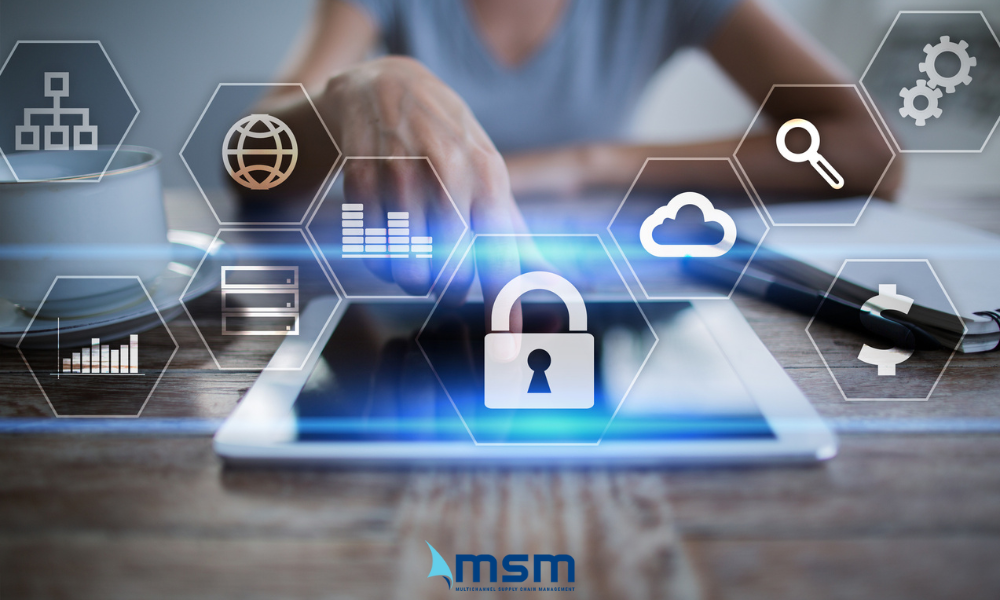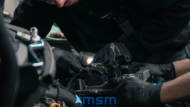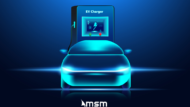In the digital age, cyber security is one of the biggest concerns. Sit down; we have some scary statistics for you…
In 2021, cybercrimes cost the US $6.9 billion. There is a cybercrime every 37 seconds, and two people have their data leaked online every second. For businesses, the average cost of a cyber attack or data breach can range from $120,000 to $1.24 million. Those are scary numbers, especially for small businesses like local auto dealerships that have a smaller cyber security budget to be able to defend against cybercrime and data breaches. In fact, 15% of auto dealers and car retailers have reported a major cyber attack in the past year. 
As doom and gloom as the above data looks, there is some good news. The good news is that, with a little bit of knowledge about the biggest threats to auto dealerships, you can better secure your business and limit cyber security risks.
Cyber Security Risks for Auto Dealerships
Here are some of the biggest digital security concerns facing auto dealerships. Keep in mind that these are not all the security concerns that a car dealer faces, and you should continue to educate yourself on all cyber security concerns and follow all of the data leak and hacking trends affecting businesses.
Printer and Network Security
Businesses are often hesitant to connect all of their printers through software or applications due to perceived security concerns. These concerns are not without merit, though digital security concerns relating to printers should be limited if an auto dealership takes precautions.
68% of businesses reported a cyber hack that traces back to their printers and print networks. Though there is a big shift towards paperless offices, the reality is that printers and print volume, are increasing at an all-time high. It is vital for dealerships to secure their printing network.
The reason there are so many cyber attacks that target printers is not that they are difficult to secure, but that businesses, and especially auto dealerships, overlook their printing network as a point of a digital security risk. There are four ways that can help limit, or eliminate, the cyber security risks to your printers:
- Secure Printers Firmware
- Secure Printers with Data Encryption
- Require User Authentication
- Utilize Managed Print Services (MPS) Software
If you have not taken the time to think about the security of your printers and to design a plan for securing your print network, make sure to prioritize it. We suggest starting with an MPS solution.
Password Hacking
If your password is 1234, you might want to stop reading this and change your password immediately. Password hacking is something cyber hackers are constantly working on. In fact, 1 million passwords are hacked every day, with cybercriminals using high-speed software to test passwords rapidly. And auto dealerships with employees frequently logging in and out of multiple websites and software, with computers and devices full of customers’ financial information, are a prime target.
Similar to securing printers and your print network, securing passwords is simple, but often overlooked. To start, don’t pick easily guessable passwords, such as passwords with popular words like cities, states, or celebrity names. And most importantly, never incorporate personal information into your passwords, such as birth dates or address information. Lastly, look into software that can help secure your passwords for you.
Phishing
The biggest digital security threat to auto dealers is their own employees. This is true of any business. Cyber attacks that can break into a business’s data without any involvement from anyone on the inside are extremely difficult to execute and very expensive. The much easier path to hacking into your data for a would-be digital criminal is to rely on human error or even ignorance.
82% of cyber attacks occurred because of human error within the business that was attacked. Almost all of these are innocent mistakes and often mistakes the employee responsible never realizes they were the weak spot in the digital security chain. The most common way hackers utilize people within a company to breach data is through phishing.
The most common phishing attacks are through emails. An employee within a dealership may get an email that looks legitimate. It will often look like it is from a company they have done business with. The employee opens the email and clicks on a link within the email and enters their login and password for what they think is that company’s website, only instead it is a hacker site designed to look and feel like the actual website. While they don’t realize it, they’ve just given the hacker their login credentials and sometimes complete access to their computer and often to any computer, device, or software connected to the network.
How to Protect Against an Email Phishing Attack
- Look closely at the email addresses.
- Hackers will use an email address that looks legitimate, but often has a misspelling, comes from a public domain (like Gmail), or is not an actual email address or domain used by that business.
- Be leary of generic greetings.
- Generic greetings are obvious to spot. They will be something like, “Hi Dear” or “Hello Customer.” These aren’t always phishing attempts, but any generic greeting should make you pause and further examine the email prior to opening, and especially prior to clicking on a link.
- The email offers you free stuff.
- Most emails offering you something for free are either phishing attempts or marketing spam. Yes, it is possible there might be a legitimate offer of something free that would be of interest to you, but proceed with caution.
- The email says there is a problem with your account.
- This is common now, and the type of phishing attempt that hackers have the most success with. Often, they’ll design the email to look like it comes from a social network, such as Facebook. The email will say that there is a problem with your account or that your account has been suspended. When you click the link, you’ve been hacked. Then, they’ll often prompt you to enter a username and password, which then gives them control of your social network. And, because people often use the same username and password for multiple websites, hackers will take this information and attempt to hack into any other website you utilize.
- The best practice is that when you get an email like this; go directly to the website of the company it says it is from, rather than clicking links within the received email. Then look to see if it is one of their email addresses, and contact their customer service directly through the contact information on their website.
Cyber attacks aren’t going away. Digital security will continue to be an increasing concern for auto dealers. The first step to protect your business is to do an audit of your current digital security and create a plan to improve it. Then, and this is vital, educate your employees on digital security threats and empower them to play a role in securing your digital infrastructure. Your employees may be your biggest security threat, but they can become your biggest cyber security strength.







